Young American Sharing Traditional Chinese Culture with World
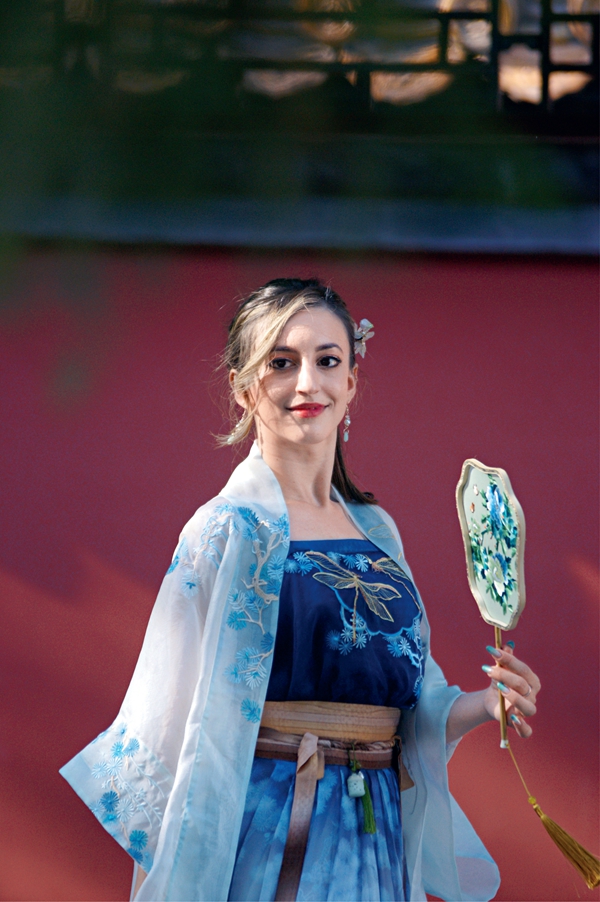
JongMay Urbonya, from the United States, has a great passion for traditional Chinese culture. In her eyes, traditional Chinese culture transcends the test of time, and international boundaries. JongMay recently opened a business in Beijing, creating content for Chinese and international media channels. She will use her social media to share her discoveries and the wonders of traditional Chinese culture with the world.
Urbonya's given English name, JongMay, is a Chinese name, Zhongmei. These words mean China and America. Her parents worked as teachers in China from 1987 to 2000. She was born in Dalian, in Northeast China's Liaoning Province, in 1994, and moved to the US with her parents at the age of 6.
In 2011, Urbonya returned to Beijing for her senior year of high school. One year later, she enrolled in Beijing Normal University, to study Chinese dance. In 2016, JongMay was admitted to the Communication University of China, as a broadcast major. In recent years, JongMay has been invited to perform dancing, acting, and hosting on TV shows across China.
During an interview with Women of China, Urbonya talked about her passion for studying traditional Chinese culture, and how she hopes to share her cultural experiences in China. The following is an interview, in question-and-answer format:

Women of China (WOC): What made you return to and stay in Beijing? How did your interest in traditional Chinese culture develop?
Urbonya: While living in the US, my parents used Chinese TV shows and ancient historical dramas to keep up my Chinese-language ability. When I watched historical dramas, I gradually fell in love with ancient Chinese culture, and stories of the ancient imperial court.
As early as I can remember, I would throw blankets over my shoulders, pretending to be an ancient Chinese princess. In high school, I wanted to come to China to experience school life, and learn about the culture more deeply.
I think the only way you can truly understand one's culture is to immerse yourself in it. With love for Chinese dance and Chinese culture, I came back to China in 2011, to finish my last year of high school in Beijing. As a student, I also wanted to improve my Chinese language in general.
I decided to stay in China for my bachelor's and master's degrees. After completing my master's degree, I wanted to stay in Beijing, because I had formed deep connections and meaningful friendships with my Chinese and international friends from school.
Since I came to China, I have always been fascinated by the ancient culture. When I was at Beijing Normal University, I studied ancient Chinese dances, and performed them as well. At that time, I had not yet studied the culture extensively, and often did not understand the deeper connotations and historical meaning.
With my Chinese friends, we bonded over our mutual love for traditional Chinese culture. With my foreign friends, not only did we bond over Chinese culture itself, but also over loving to get to know each other, and experiencing a foreign country and foreign language together. Now, I've stayed in China because I want to be a part of the new movement, promoting traditional cultural products, and hanfu culture.
After graduating, I began to spend more free time experiencing the hanfu culture, and I developed a passion, like many millennials in China, for traditional Chinese cultural products.
Hanfu culture is a combination of traditional Chinese cultural dress, and cosplaying characters in ancient Chinese TV dramas. Chinese millennials have transitioned traditional Chinese culture into cosplay, linking the ancient past and the present.
Ten years ago, when I wore a traditional Chinese outfit on the streets, people would just look and possibly say, "Look at the foreigner. Is she wearing a Chinese outfit?" Fast forward 10 years and things are completely different. When people see me on the street dressed in hanfu, they look and say, "Oh look! Another girl in hanfu, and she's a foreigner, too!" This goes to show how widespread hanfu culture is. Throughout China, now people are very accepting and love to see people expressing themselves through traditional dress.
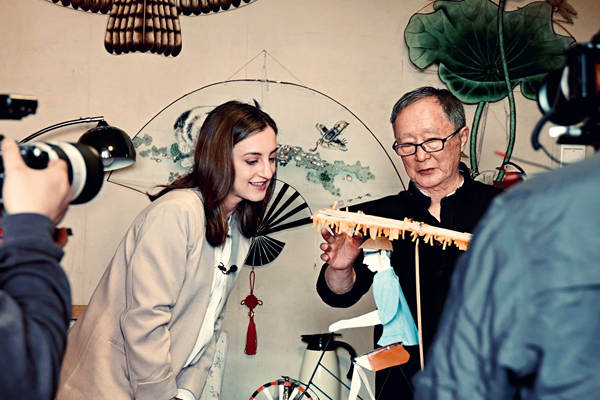
WOC: In 2017, you were awarded a ceremonial position as a rotating mayor of Danzhai Wanda Town, in Qiandongnan Miao and Dong Autonomous Prefecture, in Southwest China's Guizhou Province. Please tell our readers about your experiences there, and also please share your feelings about China's poverty-alleviation efforts.
Urbonya: As far as I'm concerned, common prosperity is where all can experience basic modern living conditions, and a comfortable living. I think it is apparent that the more people who grow up living in an environment where basic needs are met, the more people have a chance at excelling in their own futures. Without having to worry about poverty and basic needs, children have more chances to achieve their dreams, whatever their dreams may be.
I was honored to be able to participate in the efforts toward poverty alleviation and common prosperity in 2017, when I was called on to be the 16th mayor of Danzhai Wanda Town. It is a small tourist town created within Danzhai County through poverty-alleviation efforts.
The town is designed with the architecture of the Miao and Dong ethnic groups. When tourists walk through the town, they can taste specialty foods, watch local performances, and experience all kinds of intangible cultural heritage arts and crafts projects.
During my term as mayor of the town, I would work with the locals to create videos displaying all of the different activities tourists could participate in. These activities included filming the bullfights, integrating traditional and western foods, and filming the beautiful diverse scenery in Danzhai.
Danzhai also has a daily dance parade for all tourists. The parade has even more traction on weekends. We planned an event integrating traditional Miao culture with my own knowledge of an American custom, "line dancing," for all of the tourists to enjoy.
For me, Chinese culture means traditional arts, dance, literature, and, of course, beautiful ancient silk, and clothing from past dynasties to the present. Cultural exchanges help create cultural experiences that lead to meaningful connections between cultures. These experiences lead to cultural understanding among one another. Once there is more understanding, meaningful exchanges can be established.
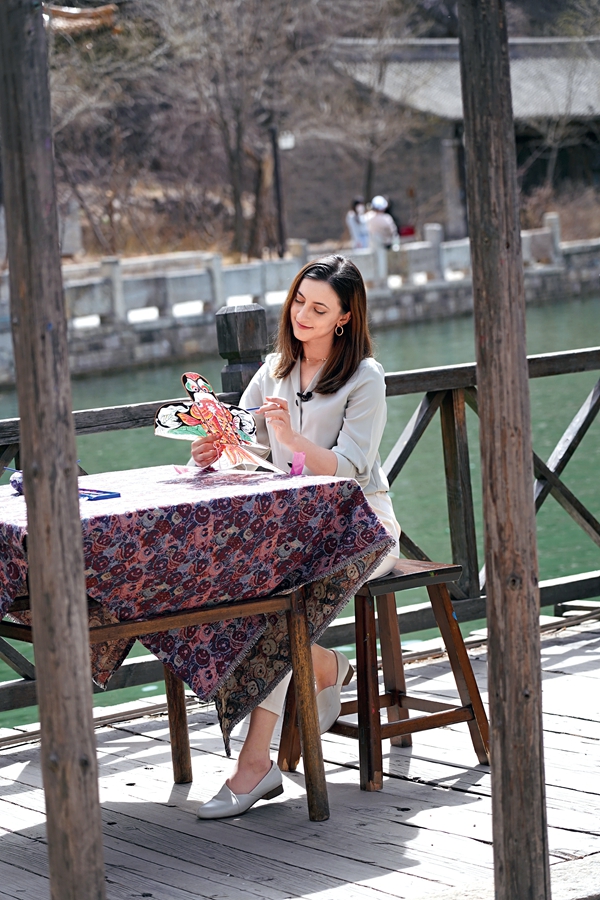
WOC: You established a company, in Beijing, earlier this year to spread traditional Chinese culture. Would you please tell us about your business?
Urbonya: During the past few months, I started my own business to create content for Chinese and international media channels, including Chinese channels, such as Bilibili, TikTok, and international channels, such as YouTube.
These channels detail my experiences during my journey of the hanfu culture. Shorter videos document my studies through Chinese poetry, while longer-length videos focus on lifestyle experiences.
More and more of my peers are curious about my life in China. My poetry videos have received lots of curiosity and praise on Western media. I often wear traditional Chinese clothing, hanfu, in these videos. Many people send messages to ask where the outfits are from, often telling me they want to buy the same outfits. I truly believe starting my business around traditional Chinese culture is a way to help people around the world become familiar with Chinese culture, and to make it easier for them to acquire products.

The Chinese Government has made it possible for me to open a business and become an entrepreneur, and I will work diligently to honor this. I will not let down the organizations that worked tirelessly to give me and other foreign business owners this opportunity to work here.
I hope to use my knowledge of Chinese culture through hanfu, poetry, and creative cultural products to make them more accessible to those outside of China. I am also partnering with companies combining Chinese and Western cultures into their products. I do hope to share all of this wonderful traditional Chinese culture with the world through my Internet channels within China and abroad.
Photos Supplied by Interviewee
(Women of China English Monthly January 2023 issue)
Please understand that womenofchina.cn,a non-profit, information-communication website, cannot reach every writer before using articles and images. For copyright issues, please contact us by emailing: website@womenofchina.cn. The articles published and opinions expressed on this website represent the opinions of writers and are not necessarily shared by womenofchina.cn.



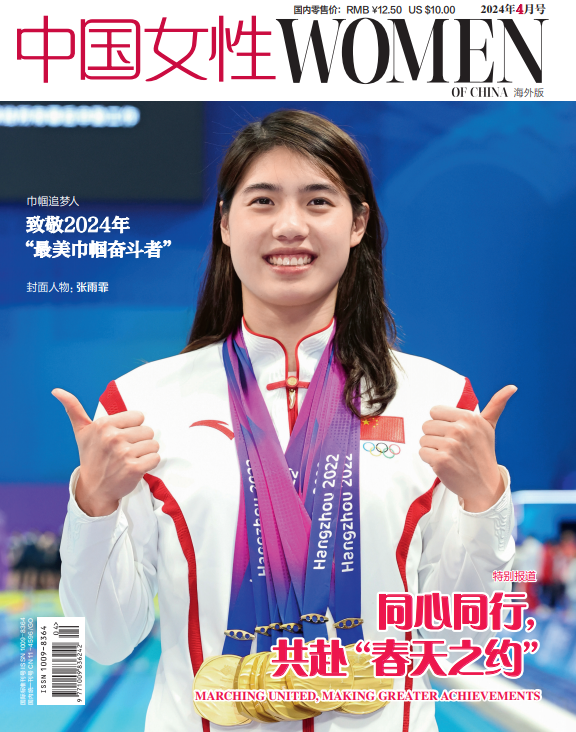


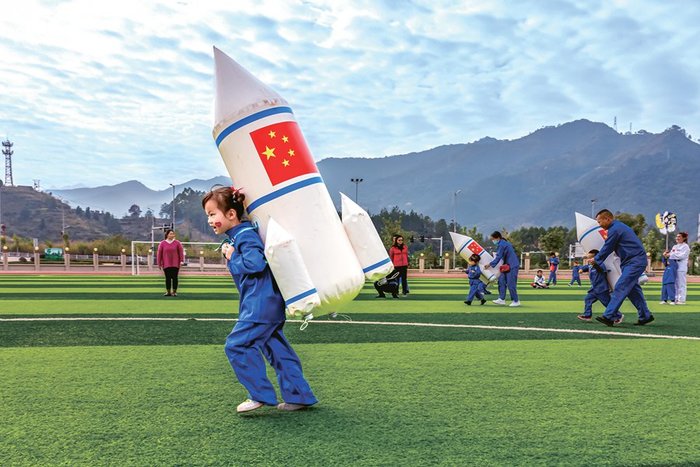

.jpg)

 WeChat
WeChat Weibo
Weibo 京公网安备 11010102004314号
京公网安备 11010102004314号